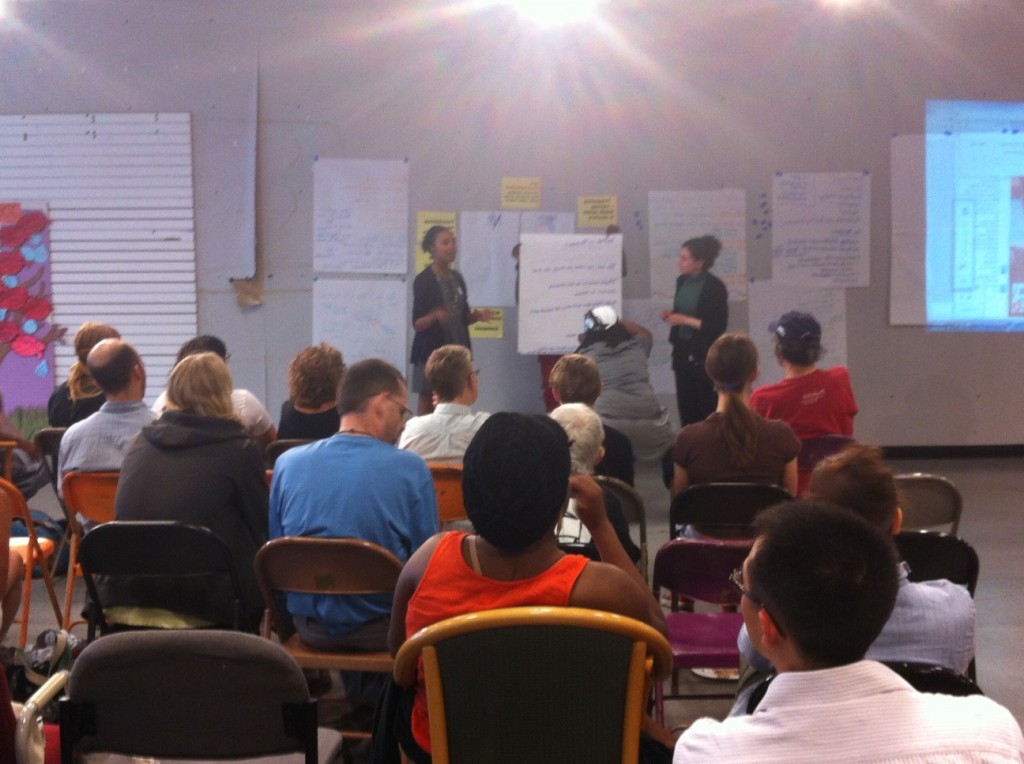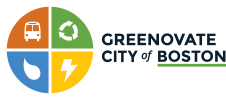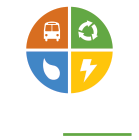
This blog post is authored by Magdalena Ayed, Coordinator & AmeriCorps LISC Member, NOAH. We hope this series of community workshops will help serve as a road map for how Boston neighborhoods can contribute to the City’s overall climate efforts. If your community has stories or best practices on climate action planning, we would love to hear from you!
On March 5th, Neighborhood of Affordable Housing (NOAH) held the first of a series of Kresge-funded community workshops to build upon East Boston’s climate adaptation planning efforts in the newly-built LEED Gold East Boston Library. These workshops aim to address the near- and long-term impacts of climate change, such as sea level rise, coastal flooding and extreme temperatures, on East Boston neighborhoods. They will be facilitated using a supported community planning process, which will ensure diverse community representation from all East Boston neighborhoods (Eagle Hill, Orient Heights/Star of the Sea, Maverick and Jeffries Point). We hope this effort will become enduring, and one which can be successfully replicated, especially in other urbanized coastal communities.
In this first workshop, our technical climate science partners and NOAH leadership had a debrief session with representatives from all the neighborhoods called ‘delegates’, to update and discuss various aspects of climate change, potential local impacts, flood mapping, and possible adaptation solutions specifically for East Boston. This process aims to create social equity through improved long-term planning as well as by identifying opportunities for individuals to increase their resiliency in the short-term by reducing their risks to climate change.
Community delegates were highly engaged at the March 5th workshop, and are excited for the next workshops where they will do more in-depth planning with state and city agency representatives and our technical partner, the Urban Land Institute.
“At the March 5th workshop I had a chance to really understand what the impacts of climate change would be to my neighborhood, especially living by the water in the Maverick area.” said Carmen Giannini, a Maverick resident. “At the next workshop, I look forward to looking at actual agency plans and to see how we as a community can take action, especially implementing plans that could potentially create local jobs as well,”
The next gathering will take place on Wednesday March 25th, and will be the first of three workshops where East Boston community delegates will meet with state and city officials to discuss more in-depth climate preparedness strategies and actions specific to each neighborhood , and more specifically, how East Boston residents and businesses can be engaged when devising these plans. The March 25th workshop, along with the last two of the series, are designed with breakout sessions where all the neighborhood delegates can address specific concerns directly with representatives from the participant city and state agencies. The two following workshops will be held on May 20th and June 10th.


Recent Comments